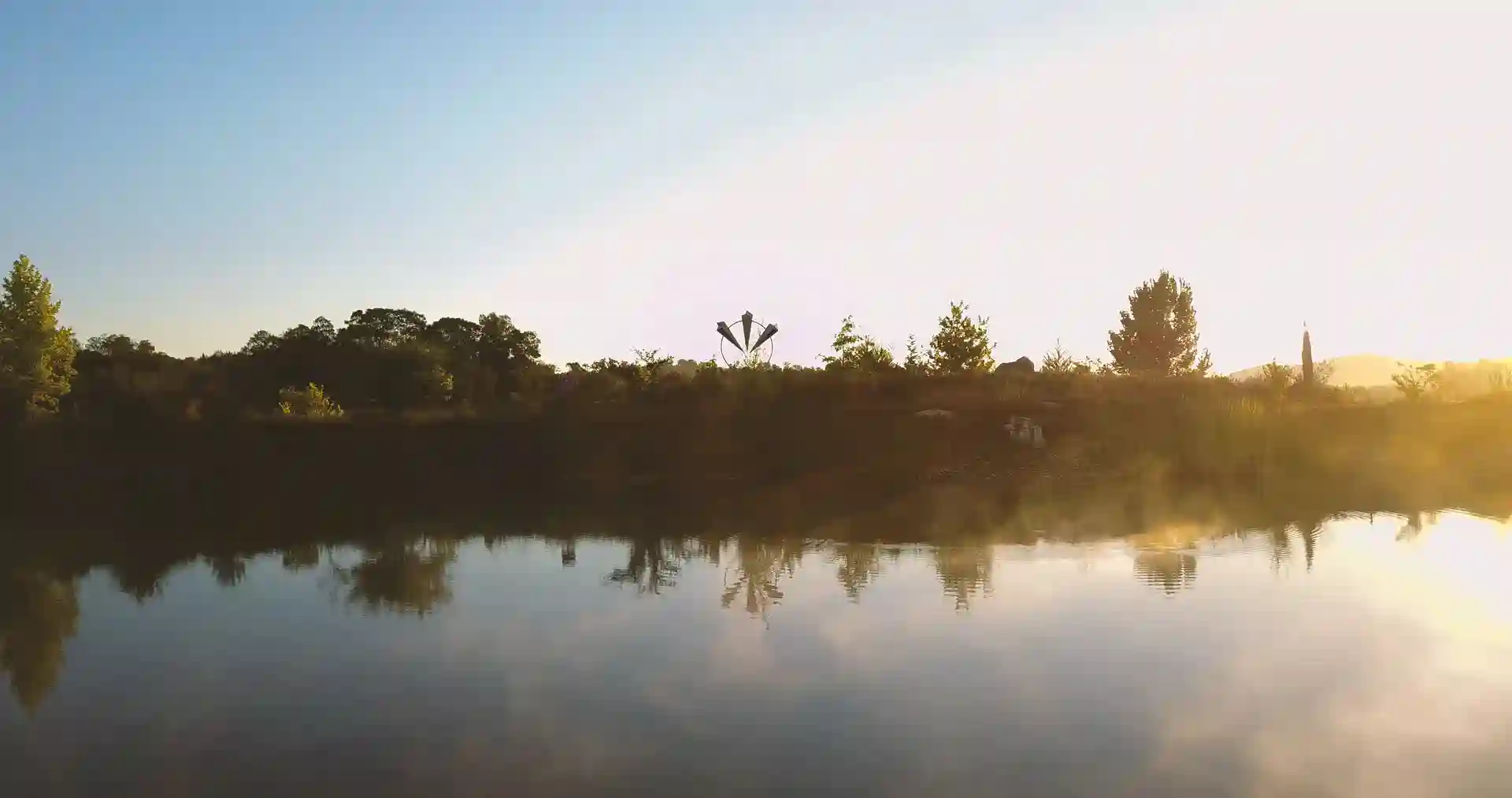Communitarian Economy
An essential part of global system change is a new economic approach in which we step out of the hypnosis of monetization and redefine true “value.” We’re creating a communitarian regenerative economy where people’s basic needs can be recognized and met. As much as we can, we’re working on transitioning from a private to a communitarian economy. This isn’t imposed by rules, but by a natural process of growing trust. Trust in community is our biggest currency. Within Tamera there is already a far-reaching gift economy operating.
“A functioning community of trust is a functioning economy.”
BENJAMIN VON MENDELLSSOHN, Director of The Grace Foundation
Concept
Our research focuses on learning how to cooperate effectively in and through trust. Capitalism is fear-based as it separates us from the principles of life and prioritizes short term profit over life’s continuity. Yet if we want to survive and thrive, our economy has to serve ecology. The economy of a peace culture values life over profit and is oriented toward the regenerative principles with which nature operates. In a functioning Healing Biotope there’s no longer a contradiction between caring for nature and having a thriving economy.
We create a community of trust where people’s basic economic needs can be recognized and met. The more a community can honor the true values of people – trust, solidarity, water, food, energy – the more we can step out of the illusion of monetary value.
We try to find an economic system that reflects the reality of community as closely as possible, which is a challenge in a capitalist world. Our community ownership of 2 associations and a company is necessary because at the moment, there’s no legal structure that fits the complex model of an emerging Healing Biotope. We guarantee community members’ (known as co-workers) basic needs such as food, accommodation, basic health care and monthly pocket money.
We also accept donations as a way to step out of the system. Friends of the project around the world provide a substantial amount of our funding, which takes us further away from the traditional business economy system, and allows us to free ourselves of its constraints. This allows us, for example, to offer scholarships for our Portuguese and global network.

Communitarian Economy
We’re trying to move to a gift economy, and there’s a high level of gifting between community members. Because basic needs are met, there’s no pressure to survive and because we work on fostering trust and solidarity every day, there’s the wish to serve the community and each other. The more intimacy and solidarity there is in community, the more gifting and sharing increases. Services within our community are freely exchanged between co-workers.
When deciding what to spend money on, the most important factor is transparency. We have a Finance Council that holds the financial vision and develops the strategy, and a Finance Committee that makes daily decisions. Both act with trust and transparency taking financial proposals to the community in the weekly plenary (whole community) meetings.
Our co-workers fund for 13 people is a research project following the principle that we give what we can and we take what we need. They share their monetary needs and wishes, and see how their needs and wishes can be met with generosity, questions, creativity and support. We aim to create a model for the whole community, an all-comprising communitarian economy.

Be part of manifesting a global peace plan. With your donation, you can help us maintain and broaden our research, education and outreach programs.
Insight
- Our existential fear is hardly ever financial or economic in the first place. It’s only symptomatic of deeper-rooted fears in areas of belonging, meaning, love and sexuality. In a community of trust, we can recognize and dissolve these deep-rooted fears and stop projecting our fears onto money and the economic system.
- Trust is our biggest currency. We’ve found that the level of gifting increases in correlation with the intimacy and solidarity we have within community.
- Shifting private to communitarian economy isn’t a rigid process imposed through rules, but one that happens naturally to the extent that trust arises. Most people are engaged in a private economy alongside the communitarian one – for this to function harmoniously, transparency is key.
- We’ve found we can live with less money through the synergetic effect of community.
- The individualism fostered in mainstream culture is a tool of economic dominance. By putting as much economic pressure as possible on the individual, the marketplace makes people dependent on it and fosters competition, greed, exploitation and isolation.
- Both love and money need to flow naturally for their vitality. Instead of hoarding and privatizing, a healthy economy requires sharing and giving in transparency and trust.
- Gradually building decentralized autonomous communities provides independence from the globalized system. While we still have to buy things that we can’t produce, we’re working towards a post-capitalist model, for example through achieving autonomy in water, food and energy.
- Alternative economy models like local currencies and regional economies need their anchor in a solid human base of solidarity, cooperation, transparency and trust to work in the long run.

